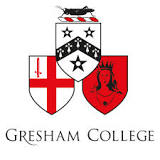Category: Musical performances
Beethoven: Quartet in F minor, Op. 95
This quartet, which was composed in 1810 or 1811 and is his last before the so-called "late" quartets that crowned his final years. It is sometime nicknamed the "Serioso" (a strange, invented word which makes up part of the typically loquacious tempo designation of the third movement: "Allegro assai vivace ma serioso"), and is one of Beethoven's most restrained and austere quartets: a piece that he later suggested was more appropriate for private performance than for concert renderings.
This is a part of a series of lectures in which Professor Roger Parker resumes his collaboration with the award-winning Badke Quartet. Each of the six lectures is dedicated to a major work in the string quartet repertory. The focus this year will be on works written in Vienna in the years around 1800; three by Joseph Haydn, two by Wolfgang Amadé Mozart and one by Beethoven. Each session will begin with a lecture introducing the historical background and discussing the special nature of the quartet in question, and conclude with a complete performance of the work by the Badke Quartet.
Mahler and Freud: Understanding Mahler
In the Spring of 1910, Mahler went for a consultation with Sigmund Freud giving him an account of his strange states of mind and his anxieties. Mahlers complex life and family background and the extraordinary creative environment in Vienna in the early 20th Century led to groundbreaking artistic achievement. Freud was not a music lover he only enjoyed Mozarts opera, The Magic Flute - but his ideas were revolutionary and had a profound philosophical effect on music.
The lecture will explore the creative environment in Vienna at the beginning of the Twentieth Century and look at the ways Mahlers personality and beliefs are expressed in the music.
The concert will be a performance of the Schoenberg arrangement of Mahler - Das Lied von der Erde.
This event is a part of the series Creative Inspiration.
The series explores the extraordinary creative collaborations and friendships that composers have had with celebrated figures in other fields: Claude Debussy and Stephane Mallarme; Gustav Mahler and Sigmund Freud; Benjamin Britten and W H Auden; Igor Stravinsky and Serge Diaghilev.
Their symbiotic relationships have led to some of the greatest developments in the arts in the 20th Century and have profoundly influenced our understanding and appreciation of modern culture. Their groundbreaking work illuminates the human condition and has expanded our thinking about the world around us.
Mahler and Schoenberg
Mahler was a huge inspiration for Schoenberg and an early champion of his music. We will explore the influence Mahler had on Schoenberg and the Second Viennese School, and the arrangements of Mahler for the Private Music Society, at the cutting edge of music from 1918-21.
Mahler and His Circle: Mahler and Strauss
Mahler and Strauss were two of the greatest conductors of their day. This lecture will look at their influence and legacy as performing musicians and will explore the origins of their stylistic development - expanding the ideas of Wagner and moving away from them in different directions.
Mahler and the World of Yesterday
The World of Yesterday by Stefan Zweig is perhaps the finest account of Mahler's Vienna. Written as an autobiography and ending with his suicide note from 1942, this eyewitness account details the unique cultural life of Vienna before the First World War and the extraordinary developments in architecture, music, literature and painting. The lecture explores the cultural environment and the background to Mahler's music and his role as the Music Director of the Vienna State Opera. It also provides an account of the tumultuous events that shaped Mahler's posthumous reception.
Mahler, the Prodigy and Hollywood
Both Mahler and Strauss proclaimed the thirteen year old Korngold a genius. This lecture will explore how Mahler influenced a generation of émigrés who wrote for films. Concert: Korngold, Cello Concereto, Op.37; Mahler, Urlicht, Korngold, Piano Trio, Op.1.
Mozart Quartet in D major, K. 499 ("Hoffmeister")
Franz Anton Hoffmeister was in Vienna during Mozart's time in the city, and was a personal friend of the composer; hence the attachment of his name to this quartet, which comes directly after the six "Haydn" quartets and was composed in 1786. Mozart's quartet vision was ever-expanding, in particular into further explorations of counterpoint (in the second, minuet movement) and into the detailed filigree of the Haydn-influenced slow movement.
This is a part of a series of lectures in which Professor Roger Parker resumes his collaboration with the award-winning Badke Quartet. Each of the six lectures is dedicated to a major work in the string quartet repertory. The focus this year will be on works written in Vienna in the years around 1800; three by Joseph Haydn, two by Wolfgang Amadé Mozart and one by Beethoven. Each session will begin with a lecture introducing the historical background and discussing the special nature of the quartet in question, and conclude with a complete performance of the work by the Badke Quartet.
